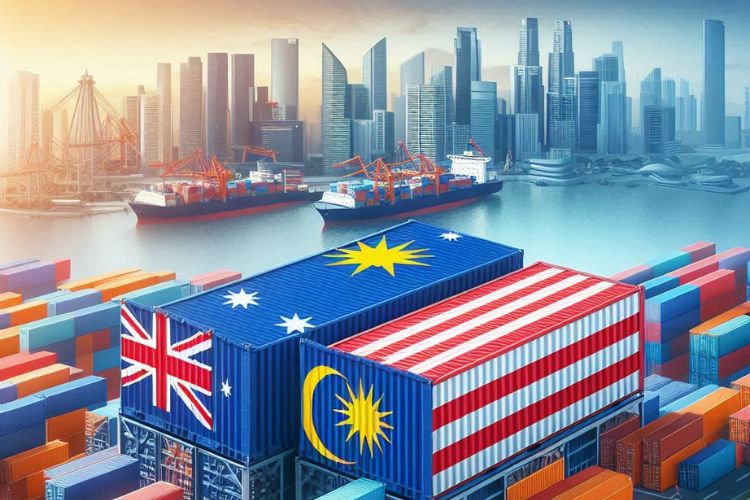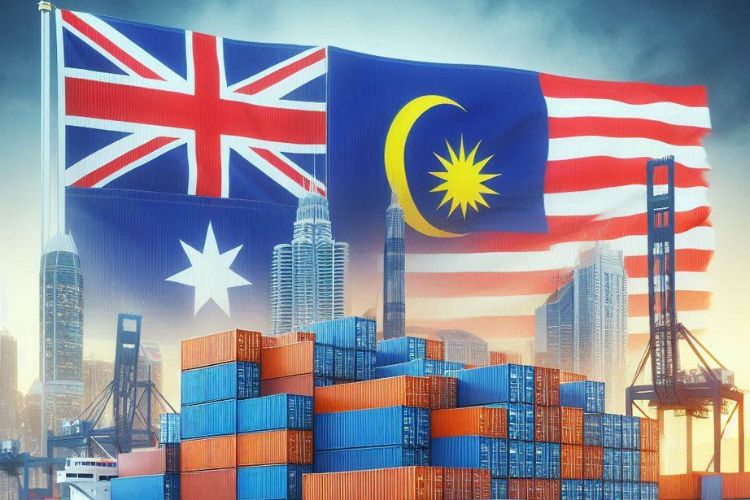Australia and Malaysia share a robust trade relationship, backed by key agreements that facilitate the movement of goods between the two nations. For businesses and individuals looking to import products from Malaysia into Australia, it’s crucial that they understand the process. From navigating trade agreements to handling customs duties and taxes, several factors must be taken into account.
Understanding Trade Agreements
One of the first things to consider is the trade agreements between the two countries – which provide significant advantages by reducing or eliminating tariffs on a wide range of goods.
Two key trade agreements shape this relationship:
- The Malaysia-Australia Free Trade Agreement (MAFTA): This one offers Australian importers preferential tariff rates on most Malaysian goods. Products that meet the Rules of Origin criteria under MAFTA are often exempt from customs duties.
- The ASEAN-Australia-New Zealand Free Trade Agreement (AANZFTA): This broader agreement also provides favorable tariff treatment for goods imported from Malaysia and other ASEAN nations.
Customs Duties and Taxes
- Customs Duties
In most cases, goods valued over AUD 1000 are subject to a 5% customs duty. However, if they meet the Rules of Origin criteria under the Malaysia-Australia Free Trade Agreement (MAFTA), they may be exempt from this duty. This exemption applies to most Malaysian-origin goods, with a few exceptions such as alcohol and tobacco.
- Goods and Services Tax (GST)
A 10% Goods and Services Tax (GST) is levied on the CIF (Cost, Insurance, and Freight) value of all imports above AUD 1000. This means the GST is applied not only to the value of the goods but also to the cost of shipping and insurance. Understanding how to calculate the CIF value accurately is essential to avoid under- or over-paying your taxes.
Documentation Requirements
- Import Declaration (Form B650)
This is one of the most essential forms for importing goods into Australia. The Import Declaration (Form B650) provides details about the goods being imported, their value, and the importer’s information. This form is mandatory for all imports and must be accurately filled out to avoid customs clearance delays.
- Certificates of Origin
To qualify for preferential tariff rates under the Malaysia-Australia Free Trade Agreement (MAFTA), a Certificate of Origin must be provided. This document verifies that the goods originated in Malaysia and meet the Rules of Origin requirements under MAFTA. Without it, your goods may be subject to higher customs duties.
Completing these documents may be time-consuming, especially for new importers. That’s why working with professionals like Worldwide Customs & Forwarding is beneficial. They can ensure that all paperwork is properly completed, reducing the risk of errors and facilitating faster customs clearance.

Prohibited and Restricted Items
When importing goods from Malaysia into Australia, it’s vital to be aware of the items that are either prohibited or restricted. Bringing in goods that fall into these categories without the proper permits can result in serious penalties, including the confiscation of goods, fines, or legal action.
- Prohibited Items
Certain items are completely banned from being imported into Australia. These include products that pose health, environmental, or safety risks. Examples of prohibited items include:
-
- Illicit drugs
- Certain weapons and firearms
- Products made from endangered animals
- Objectionable material, such as content deemed illegal or offensive.
- Restricted Items
Some goods can be imported but are subject to specific restrictions and may require permits or approvals before they can enter the country. Restricted items include:
-
- Medications: Prescription medicines require approval from the Therapeutic Goods Administration (TGA).
- Agricultural products: Items like plants, seeds, and certain foods require inspection and permits due to biosecurity concerns.
- Tobacco and alcohol: These are subject to high duties and require special handling.
Valuation and Calculation of Duties and GST
- Customs Duty Calculation
Customs duties are calculated based on the value of your goods and their Harmonized System (HS) code. The HS code categorizes goods and determines the applicable tariff rate. For most goods valued over AUD 1000, a 5% duty is applied unless exemptions are available under trade agreements like MAFTA.
For example, importing 2000 cigarette sticks would involve a specific customs duty calculation based on the number of sticks and their HS code. Identifying the correct HS code for your goods is crucial for determining the correct duty rate.
- GST Calculation
The Goods and Services Tax (GST) is levied at 10% on the CIF value of the goods, which includes the Cost, Insurance, and Freight. This means the tax is applied not only to the value of the goods themselves but also to the cost of shipping and insurance.
Customs Clearance Process
The customs clearance process is a critical step in importing goods from Malaysia into Australia. Ensuring that all documentation is accurate and complete is crucial to preventing costly delays or penalties.
Below are key steps to streamline the customs clearance process.
- Accuracy of Documentation
To avoid any delays or complications, all forms and declarations must be filled out accurately. This includes ensuring that the Import Declaration (Form B650), Certificates of Origin, and other necessary documents are complete and match the details of your shipment. Misdeclarations or incomplete information can lead to customs inspections, fines, or even the rejection of your goods.
- Timely Submission
Submitting your documents on time is essential for a smooth clearance process. Customs authorities will require all forms to be completed before the goods arrive in Australia.
- Role of Customs & Forwarding Agents
Navigating the intricacies of customs clearance can be complex, especially for new importers. That’s where a customs & forwarding agent like Worldwide Customs & Forwarding can help. With their in-depth knowledge of Australian customs regulations, they can handle the entire clearance process on your behalf, ensuring compliance with all legal requirements.
Additional Resources
The Australian Border Force (ABF) website offers a wealth of information on importing goods, including detailed guides, forms, and up-to-date regulations. This resource is essential for understanding the documentation and compliance requirements for your imports.
For a deeper understanding of customs duties, GST, and other import taxes, DHL’s Australia Import Tax Guide provides helpful insights to grasp the intricacies of tax calculations and shipping cost assessments.
Conclusion
Importing goods from Malaysia into Australia offers great opportunities, especially with the favorable trade agreements in place. However, navigating the complexities of customs duties, taxes, and documentation requires careful attention to detail. By understanding the key steps involved—from taking advantage of preferential tariffs under MAFTA to accurately calculating GST—you can streamline the import process and avoid costly delays.
Note: The content on this article is for informational purposes only and does not constitute professional advice. ITD World is not responsible for any actions taken based on the information provided here.

